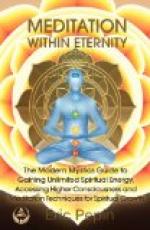Like Jesus, who said: “Many things I have to tell you, but you can not bear (understand) them now,” so, we may well believe that Mohammed was hard-pressed to find language comprehensible to his followers, in which to explain the all-knowingness and all-powerfulness of God, and at the same time, not have them fall into the error of the fatal doctrine of fatalism.
But throughout all his teachings Mohammed’s chief concern seemed to be to draw his people away from their worship of idols, and to this end he laid constant and repeated emphasis upon the one-ness of God; the all-ness, the completeness of the one God; always adding “the Compassionate, the Loving.”
This constant allusion to the all-ness of God is in line with all who have attained to cosmic consciousness. Nothing more impresses the illumined mind, than the fact that the universe is One—uni—(one)—verse—(song)—one glorious harmony when taken in its entirety, but when broken up and segregated, and set at variance, we find discord, even as the score of a grand operatic composition when played in unison makes perfect harmony but when incomplete, is nerve-racking.
Like all inspired teachers, Mohammed taught the end of the world of sense, and the coming of the day of judgment, and the final reign of peace and love. This may, of course, be interpreted literally, and applied to a life other than that which is to be lived on this planet, but it may also with equal logic be assumed that Mohammed foresaw the dawn of cosmic consciousness as a race-endowment, belonging to the inheritors of this sphere called earth. In either event the ultimate is the same, whether the one who suffers and attains, comes into his own in some plane or place in the heavens, or whether he becomes at-one with God, The Absolute Love and Power of the spheres, and “inherits the earth,” in the days of the on-coming higher degree of consciousness, which we are here considering.
That Mohammed realized the nothingness of form and ritual, except it be accompanied by sincerity and understanding, is evident in the following:
“Your turning your faces in prayer, towards the East and the West, is not piety; but the pious is he who believeth in God, and the last day, and in the angels and in the Scripture; and the prophets, and who giveth money notwithstanding his love of it to relations and orphans, and to the needy and the son of the road, and to the askers for the freeing of slaves; and who performeth prayer and giveth the alms, and those who perform their covenant when they covenant; and the patient in adversity and affliction and the time of violence. These are they who have been true; and these are they who fear God.”
Parallel with the doctrine taught by Buddha, and Jesus, is the advice to overcome evil with good. In our modern metaphysical language, we must dissolve the vibrations of hate, by the power of love, instead of opposing hate with hate, war with war, revenge with revenge.




